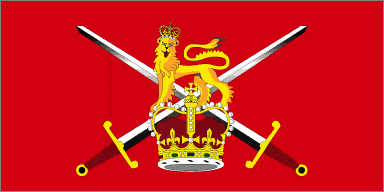 |  |  |  |  |  |  |  |  |  |  |  |  |  |  |  |  |  |  |
 |  |  |  |  |
 |
|
|
 |
|
|
|
Private Richard Wood |
|
|
|
1st Battalion, The East Lancashire Regiment |
|
|
|
 |
|
|
Richard Thomas Wood was born on 13 April 1880, at 9 Alphington Street, Exeter, in his mother's native county of Devon. He
was the first of Frederick Louis Wood's thirteen children, and was named after his mother's brother, Richard, and her late father, Thomas. Before he was one year old, Richard and his parents had moved to his father's home town of Chatham.
|
|
|
Richard grew up in Chatham, and followed in his father's footsteps by joining the British Army. He served as No.5137, Private
Wood, in the 1st Battalion, East Lancashire Regiment. Unfortunately, most of the Regimental and personal service papers relating to Richard's military service no longer exist, but it is clear from his service number that he was a recent recruit to the
Army when he was posted to South Africa in the early months of the Boer War (1899-1902).
Richard served in the Cape Colony campaign under Field-Marshal Roberts. The first objective of Roberts' army was the relief of the British garrison at
Kimberley, which had been under siege since troops from the Boer republics of Transvaal and the Orange Free State had invaded the British provinces of Natal, Cape Colony and British Bechuanaland the previous October. On 15 February 1900, Lord Roberts'
troops finally relieved the beleaguered garrison at Kimberley, and took the offensive for the first time in the war, by advancing into the Orange Free State. |
|
|
 |
|
|
|
|
|
 |
|
|
On 13 March 1900, Roberts' army captured the Orange Free State capital, Bloemfontein, without a fight. The Boer republic's
government withdrew to the provisional capital of Kroonstad, but on 12 May Kroonstad too was abandoned to the British. By late May 1900 the British Army seemed to be advancing on all fronts: with all three besieged British garrisons now relieved, and
Field-Marshal Roberts poised to advance into the Boer republic of Transvaal, the greatest challenges of the war were apparently over.
However, Lord Roberts' troops had advanced through the Free State so quickly that they had outrun their
support - especially medical - services, and had exceeded the ability of their transport system to evacuate their sick and wounded from the front line. When typhoid broke out in Kroonstad's overcrowded field hospitals in May 1900, the outbreak quickly
became an epidemic. In a single month, the British Army lost more men to typhoid in Kroonstad's hospitals than it lost on the battlefield, even in the bloodiest weeks of the war. (In fact, by the time the Boer War finished in 1902, three times as many
British soldiers had died in hospital as on the battlefield). |
|
|
|
|
Richard Thomas Wood died of disease in Kroonstad, Orange Free State, on 30 May 1900, one month after his twentieth birthday. He
was buried in Marais Street Cemetery, Kroonstad, and is also commemorated on the memorial to the East Lancashire Regiment in Braamfontein Cemetery, Johannesburg. Richard was posthumously awarded the Queen's South Africa Medal, with clasps for the Cape
Colony and Orange Free State Campaigns. |
|
|
|
 |
|
 |
|
|
|
|
Above - The Boer War Memorial Garden in Marais Street Park, Kroonstad, South Africa, where Richard Wood is buried. His grave
marker mis-identifies him as a member of the New South Wales Mounted Rifles in its inscription: |
|
|
|
"In Memory of
Woods, NSMR, 27.5.00
For King and Empire"
|
|
|
|
|
|
|
 |
|
|
Above right - Richard Wood's name is inscribed on the East Lancashire Regimental Memorial in Braamfontein Cemetery,
Johannesburg. (Detailed inscription shown right).
Right - At both Kroonstad and Braamfontein, Richard is listed as No.5137 Private Woods. However, he is correctly listed on his death certificate, in British Army casualty listings and in the PRO
Medal Entitlement Index as No.5137 Private Wood. |
|
|
|
|
 |
|
|
|
 |
|
 |
|
 |
|
|
|
|
or return to biographies home page |
|






